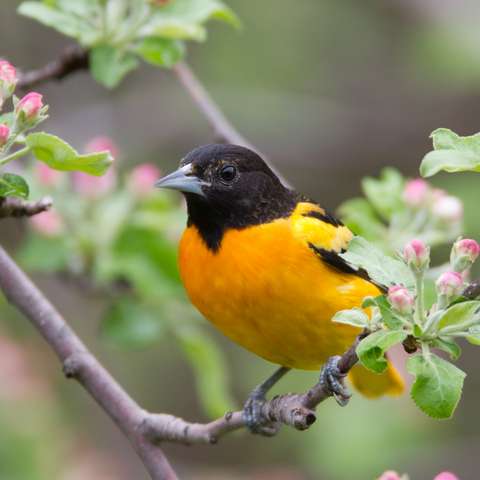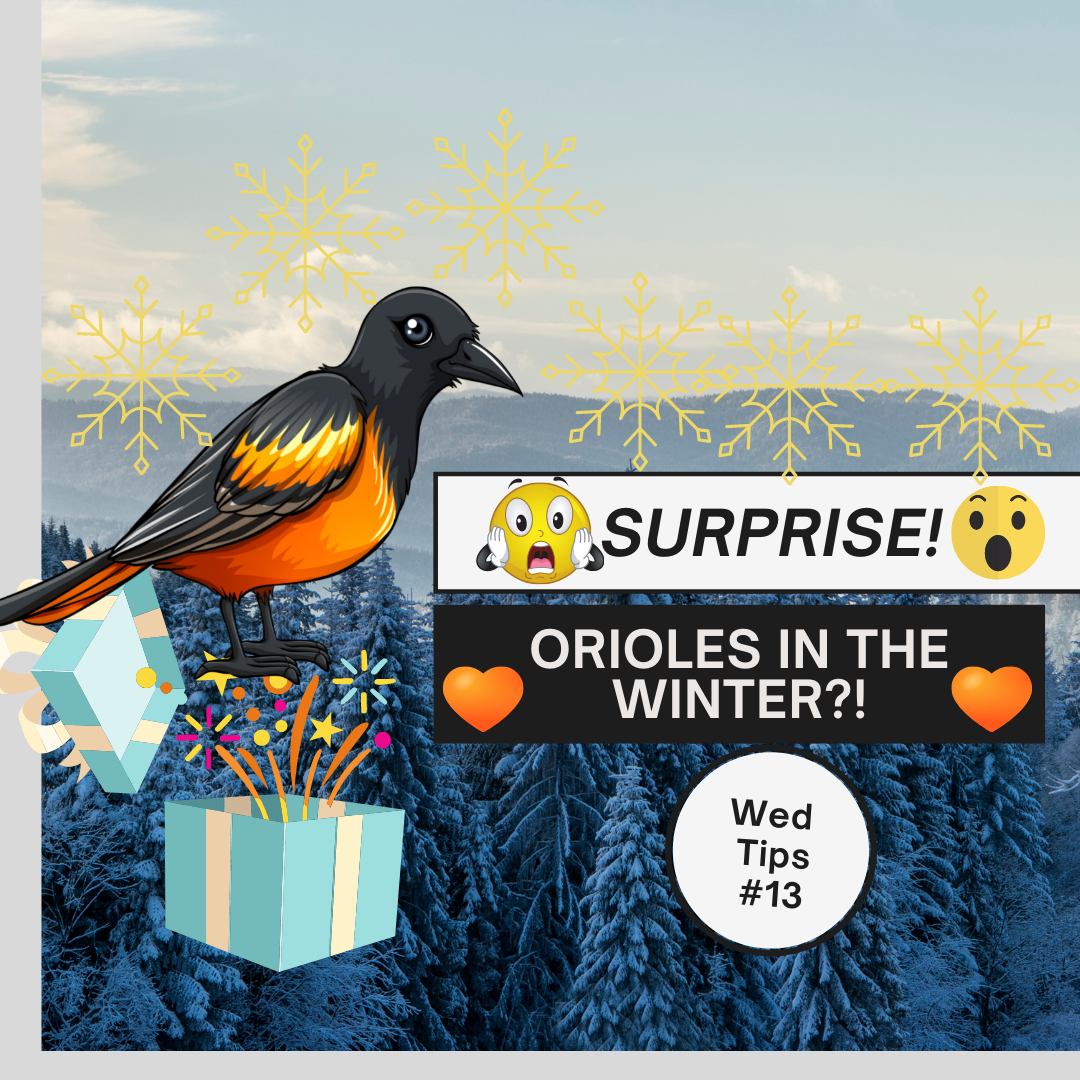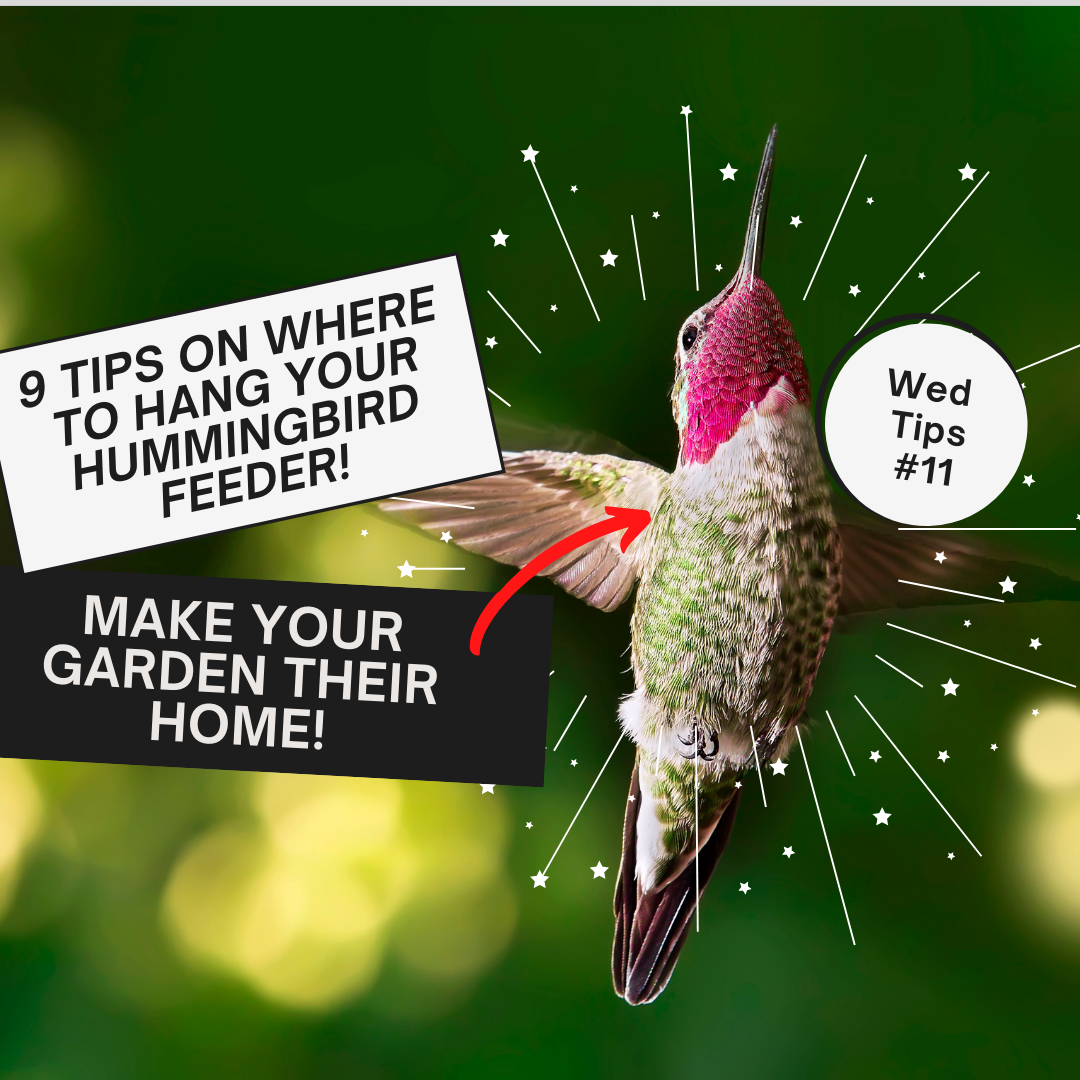
I got quite a few messages from our birders who were stunned to see orioles visiting their bird-feeders this month. Is this possible? Usually, orioles migrate to the subtropical edges of the United States, mainly Florida and the west Indies and further south in Central America. They also fly way north, where it's warmest, during the mating season. Tropical birds need tropical weather!
In the past few winters, these golden gems have increasingly been spotted in the Appalachians and eastward, Georgia and northward all the way to New England. This of course begs the question: Why are these sun-lovers sticking around in this ice-cold weather?
The answer:
If there is enough food to go around, orioles will stay put and avoid the strenuous journey south. Initially, only birds that were sick or injured would avoid the long journey south during migration, but had slim chances of surviving. Darkness would cover the earth for almost 10 hours. How could they forage in these conditions, especially if injured?
Slowly they developed a way. At night they would find themselves a warm, sheltered spot, fluff out their feathers for maximum insulation and cover their bare legs and feet with their belly feathers to avoid the piercing frostbite.
Once the sun came up with its little wintery warmth, and conditions were more permissive, orioles would fly out and forage what they could find, happily discovering there was more and more sustenance becoming available. And all this was due to bird lovers filling up their feeders!
Healthy orioles decided to join this trend finding it much more worth-while to ride out the winter and not travel thousands of miles south.
So what did these orange-fluff-balls find in our feeders?
SUET

Though orioles will not feed on seeds, as their beaks are long and too pointed for the purpose of eating insects, it is highly recommended to fill your feeders with mealworm and or/suet. Nowadays suet doesn’t necessarily come in the form of chunky blocks for designated feeders – they can come in nuggets or pastes that can be placed in any bird-feeder you choose.
In the winter insects are scarce, which is why suet is a great substitute for protein. This helps them get enough strength to survive the cold temperatures and consume enough calories to stay warm.
Having said that, there are a few orioles who will not turn their noses up to seeds:
HUMMINGBIRD FEEDERS

Hummingbird feeders are great a solution for orioles, as long as these feeders have a spot for the orioles to perch. Many hummingbird feeders have little to no perching hold as the hummingbirds like to hover as they sip the nectar. The orioles, being a little bigger, need the landing space to sip exactly the same nectar as the hummingbirds: mixing four parts of hot water to one part of sugar - until the sugar is dissolved.
ORANGE HALVES AND GRAPE JELLY

For an oriole, orange halves and slices as well as grape jelly are a slice of heaven! Most feeders offer the space for both. A big tip: place something orange on your porch or in the area next to your feeder. Orioles love the color orange and will notice it from where they are flying. And if there’s an orange slice or some grape jelly next to it – for them it’s a score!
The orioles are staying behind thanks to this abundance of food. Baltimore orioles and even Bullocks and Orchard Orioles are keeping us company, giving the snow a splash of orange to brighten our days. A little evolution can go a long way. Place some food in your feeder and let us know if they visit you too!
Read and watch: a Toronto couple help an Oriole survive the frosty winter.



2 comments
Kavyasree
We saw several Orioles in our yard in September. We live in Glen Ellen California. They only stayed around a few weeks.
Olivia Fernandes
My daughter bought me the I-view window bird feeder after she saw it at her friend’s house in Irvington, VA. I love this feeder! It was so easy to set up and within minutes my bluebirds and chickadees were feeding! I’ve also had orioles visiting all winter long! I live in Virginia Beach and have had a good amount of snow this year!
Leave a comment
This site is protected by hCaptcha and the hCaptcha Privacy Policy and Terms of Service apply.